Also from the Carter Collection
The Blood of Abraham: Insights into the Middle East, by Jimmy Carter
First Lady from Plains, by Rosalynn Carter
Keeping Faith: Memoirs of a President, by Jimmy Carter
An Outdoor Journal, by Jimmy Carter
Copyright 1987, 1995 by Jimmy Carter and Rosalynn Carter
All rights reserved
Reprinted by arrangement with Random House, Inc., New York and Toronto.
The University of Arkansas Press paperback edition published 1995
All rights reserved
Manufactured in the United States of America
23 22 21 20 19 7 6 5 4
Designed by John Coghlan

The paper used in this publication meets the minimum requirements of the American National Standard for Permanence of Paper for Printed Library Materials Z39.48.1984.
Library of Congress Cataloging-in-Publication Data
Carter, Jimmy, 1924-
Everything to gain : making the most of the rest of your life / Jimmy and Rosalynn Carter. University of Arkansas Press pbk. ed.
p. cm.
Originally published: New York : Random House, c1987. With amendments to cover a few changed circumstances.
ISBN 1-55728-388-5 (alk. paper)
1.Carter, Jimmy, 1924- Philosophy. 2. Carter, RosalynnPhilosophy. 3. Life skillsUnited States. 4. Conduct of life. 5. PresidentsUnited StatesBiography. 6. Presidents spousesUnited StatesBiography. 7. Emory University. Carter Center. I. Carter, Rosalynn. II. Title.
E873.2.C375 1995
973.926'0922dc20
[B]
95-24257
CIP
ISBN-13: 978-1-61075-144-5 (electronic)
For Jack, Chip, Jeff, and Amy
Acknowledgments
It was not easy for us to resurrect for public examination in this book some of the most traumatic experiences of our lives. A more natural inclination was to bury such events, and then go on to other matters that are more pleasant and less subjective. Our original plan was just to report the results of a health conference at the Carter Center, and to let our readers know about the personal habits that can add as much as eleven years to their life span.
However, in discussions with our Random House editor, Peter Osnos, we were encouraged to write with a wider scopeto retain, in a briefer form, the report on the health conference but to be much more personal and to include some thoughts on how to make the most of the rest of our lives. He helped us to avoid too much preaching, and to use the experiences of our own family and friends to illustrate the challenges and achievements, as well as the problems and failures, that most of us have to expect. We have needed a lot of assistance in writing this book, and Peter has served as editor, adviser, and sometimes as referee.
Achsah Nesmith did a lot of research and gave us many good ideas, using her experience as a news reporter, and joined Peter Osnos and us in the final stages of editing. As a longtime friend and White House speech writer, her assistance was invaluable.
Dr. William Foege and his medical associates at the Centers for Disease Control provided most of the facts about health care, and they have tried to ensure that the information we have given is accurate.
We are grateful to all of them, and also to the people whose own inspirational lives we have used as models. We did all the writing, and made the final decisions about both the contents and the wording, so any errors or omissions are ours.
Introduction
We live in such a remarkable time that it is difficult for us to comprehend the changes that have taken place in our lifetimesand in our lifestylessince we were both children in Plains, Georgia, in the 1930s. Every day the average life expectancy of Americans increases by seven hourstwo days each week, twenty-five years in this century. We have seen our workday shrink greatly and retirement years come much earlier. According to a recent report, a third of all American men over the age of fifty-five no longer work! Only a generation or two ago our forebears labored through a lifetime to reach an exhausted old age, whereas we can look forward to a full, robust second life in our later years. It is possible to have an entirely different career after our first one has ended and even to weave two or three exciting vocations together, while our ancestors were lucky to survive into what we now think of as middle age.
This is a book primarily about how these changes and the opportunities they represent have affected us and our immediate family. It is also a book that we hope anyone will find helpful, a source of ideas and of reassurance. At different times in our lives we have voluntarily made some radical changes, moving from the U.S. Navy to a small family business, then into local, state, and national politics. We have also had to accommodate some involuntary changes, the most traumatic of which was leaving the White House in 1981. Although a complete departure from anything we have done before, our present work in all its variety is giving us a full and stimulating life.
Political life has provided our family with both some very good times and complicated problems of an intensely personal nature. But our reaction to these experiences, we believe, has been similar to that of many people who have faced challenges of various kinds in their lives. We have dealt with unexpected deaths, with the frustration of carefully calculated hopes, and with the excitement of ideas born not only in moments of inspiration but, on occasion, from disappointment or anger. Our successes have enabled us to pursue many additional areas of interest; our unexpected failures have closed off avenues of service. In both situations, we have had to stretch our minds and hearts to encompass new realities. Above all, we have found that advancing age has not restricted us, but has actually let us go on experimenting, learning, and also teaching.
The way we have coped with lifes ups and downs has been shaped by a multitude of factors from our early lives, our relationships, religious beliefs, and our stable home community. Wherever possible in this book we have tried to relate our experiences and reactions to those of other people we know or know about. Life in a governors mansion or the White House is far from typical; therefore, we have used our life in Plains as the baseline from which we have measured our own shifting situation and the changes around us.
This is a book we both very much wanted to write, but it has not been easy for us to do together. We have completely different writing styles and work habits, and surprisingly often we have found we did not feel the same way about an event or had conflicting recollections about what actually took place. There was a dilemma: How could we write in the first person plural (using we and us) when some of the events had been experienced by only one of usor when we disagreed about what ought to be written? We finally resolved this problem by separating our individual comments and identifying their source by inserting our names. This solution allowed for clarifying differences of opinion and helped to eliminate any threat to the stability of our marriage.
We begin by describing the profound disappointment and frustration over our defeat in the presidential election of 1980. We returned home to Plains almost three months after Election Day, and faced additional personal crises involving our home life, our health, our personal finances, and the need to carve out new careers that would best allow us to use our talents. Jimmy was fifty-six; Rosalynn was fifty-three. We were no longer young, but we were definitely not old.

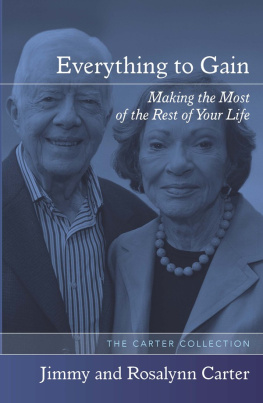
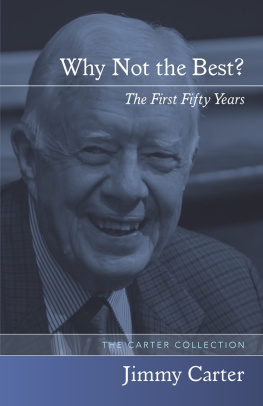
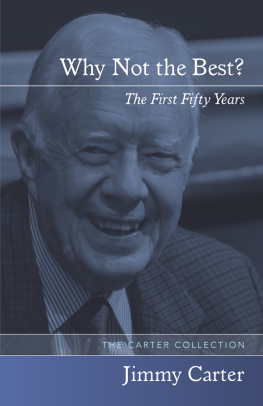
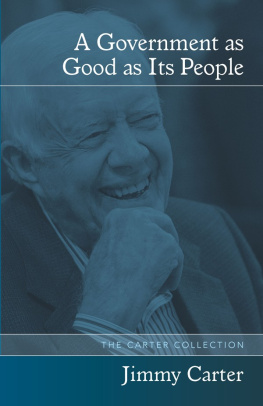
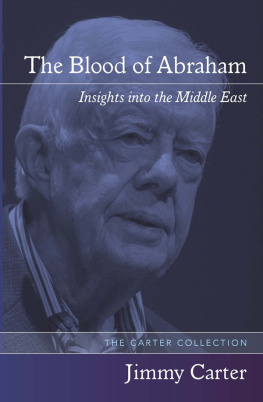
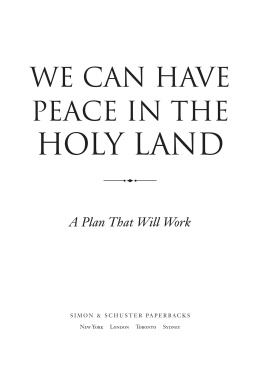
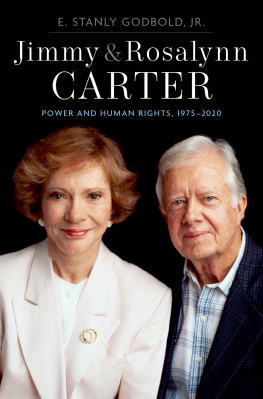

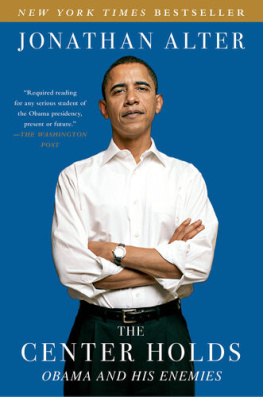
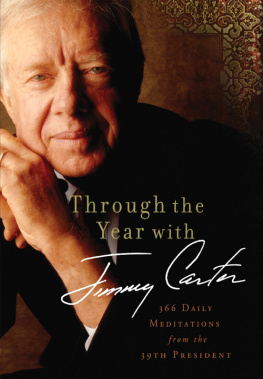
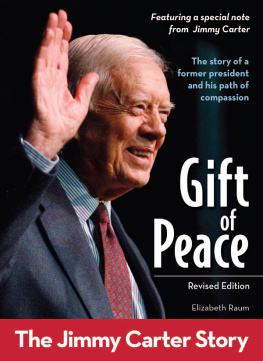
 The paper used in this publication meets the minimum requirements of the American National Standard for Permanence of Paper for Printed Library Materials Z39.48.1984.
The paper used in this publication meets the minimum requirements of the American National Standard for Permanence of Paper for Printed Library Materials Z39.48.1984.